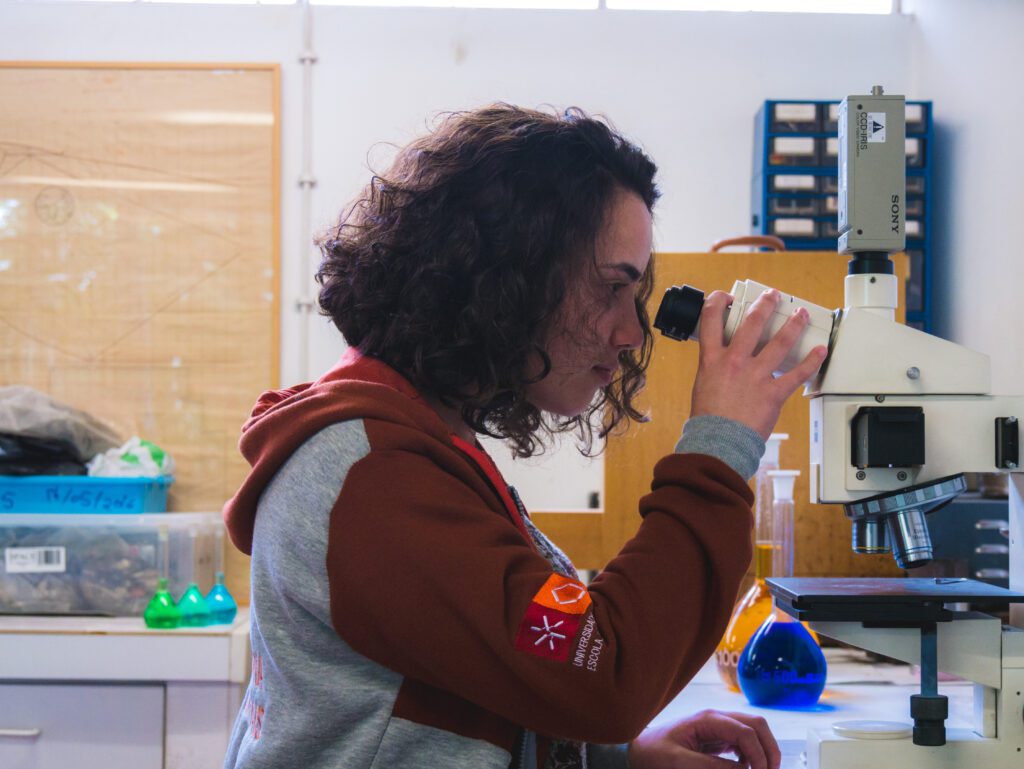What do Bill Nye, Neil Armstrong, and Rowan Atkinson have in common? They all have a bachelor’s degree in engineering. Although they are not necessarily working in the field, this demonstrates that an engineering education can lead to exciting career opportunities where you’ll get to be creative, solve problems, and explore how machines work every day.
Engineers are involved in nearly every field imaginable, especially those that include technology. From electronics, medicine, and energy, engineers are the ones improving and inventing new ways to address real-world challenges like upgrading computer software, building sustainable structures, reducing pollution, and more.
If you are looking for an engineering school to start your educational path, here are three international ones that are among the best.

The School of Engineering of University of Minho is celebrating its 50th anniversary in 2025. Source: University of Minho
University of Minho
For half a century, the School of Engineering of University of Minho has risen the ranks to become one of Europe’s top institutions for science and technology. Since its founding in 1975, the school has nurtured many entrepreneurs and enabled a significant number of registered patents. In Portugal, it is seen as the school that has served and improved the country and region’s quality of life through research, development, and innovation.
Today, as the school celebrates its 50th anniversary, it’s also marking another milestone: its highest rankings yet for its engineering programmes. Take the Textile Engineering (Bachelor), for example. Supported by the Centre for Textile Science and Technology and now #21 in Shanghai Rankings for textile studies, the programme trains you in the latest textile technologies to design, develop, and manufacture fiber based materials and produts, to be applied from medicine to automotive and aerospace, from nano to macro scale in a state-of-art industry.
Another of the school’s flagship programmes is the Polymer Engineering (Bachelor) — a top-ranking course that equips students with cutting-edge knowledge and real-world skills. Rooted in core engineering sciences and advanced polymer engineering, the programme delivers a powerful blend of theory and hands-on experience. Students gain deep expertise in polymer modification, state-of-the-art processing techniques, material characterisation, and innovative product development. Beyond the lab, the curriculum challenges students to critically explore the environmental impact and societal relevance of polymers, preparing them to shape a more sustainable future through smart materials and responsible engineering.
Other top-ranked ranked engineering programmes here include Food Science and Technology, Civil Engineering, Mechanical Engineering, Biomedical Engineering, Biotechnology, Chemical Engineering, and Materials Science and Engineering. Whichever you choose, expect to learn from several disciplines and no shortage of project-based learning and networking opportunities.
Apply to the School of Engineering of University of Minho today.

The Faculty of Engineering offers 15 degree specialisms across various departments. University of Nottingham/Facebook
University of Nottingham
The University of Nottingham is not just an educational institution; it is a powerhouse for change, which explains why top employers from around the world come here to recruit some of the best minds who will impact the industry. Ranked among the top 20 in the UK, the university is dedicated to discovering new solutions which will change how humans live. With help from a world-class faculty, you will pioneer change as you equip yourself with the right knowledge and skills to enter real-world situations.
Take, for example, the Faculty of Engineering. Here is where you will learn the fundamentals of engineering in various areas, enabling you to progress in a wide range of career pathways within engineering, architecture, manufacturing, and technology. The faculty offers 15 undergraduate degrees from six subject areas for you to specialise in. They include Aerospace Engineering, Architecture and Built Environment, Chemical and Environmental Engineering, Civil Engineering, Electrical and Electronic Engineering, and Mechanical, Materials and Manufacturing Engineering.
Most of these engineering degrees include the opportunity to work in industry, summer placements, or an internship for a year. This is when you apply your academic studies in practice, developing real-world skills that can be beneficial for your career. If you want to experience studying abroad, you can opt for the Inter-Campus exchange, where you will be placed in international campuses in either Malaysia or China. This programme allows you to broaden your global perspective in engineering as well as experience new cultures by living in a different country.

KU Leuven has been in operation for 600 years. Source: KU Leuven Faculteit Industriële Ingenieurswetenschappen/Facebook
KU Leuven
KU Leuven has been in operation for 600 years, and it does not appear that the university’s mission to produce industry leaders is coming to an end anytime soon. The most curious minds come to learn at this Belgian university, where they seek to expand their knowledge and develop useful skills to tackle today’s global issues. Here, they study, analyse, and push the boundaries of education, resulting in an interdisciplinary learning environment.
The same can be said for the Faculty of Engineering Technology, which offers undergraduate and postgraduate programmes that emphasise the integration between science and new technology. The Bachelor of Engineering Technology is a standout. In this degree, you will gain a solid understanding of engineering and a broad introduction to mathematics, chemistry, physics, and biology, all of which are essential in tackling today’s technological challenges. This is achieved through hands-on training that allows you to apply your knowledge in research labs from the beginning of the programme.
The degree consists of three stages. The first stage covers basic engineering subjects along with basic sciences, introductions to various technologies, and broad courses that expose you to the many pathways you can pursue in the field. The second stage is when you select a specialisation to master, and the third stage involves choosing a specific option within your specialisation.
*Some of the institutions featured in this article are commercial partners of Study International

